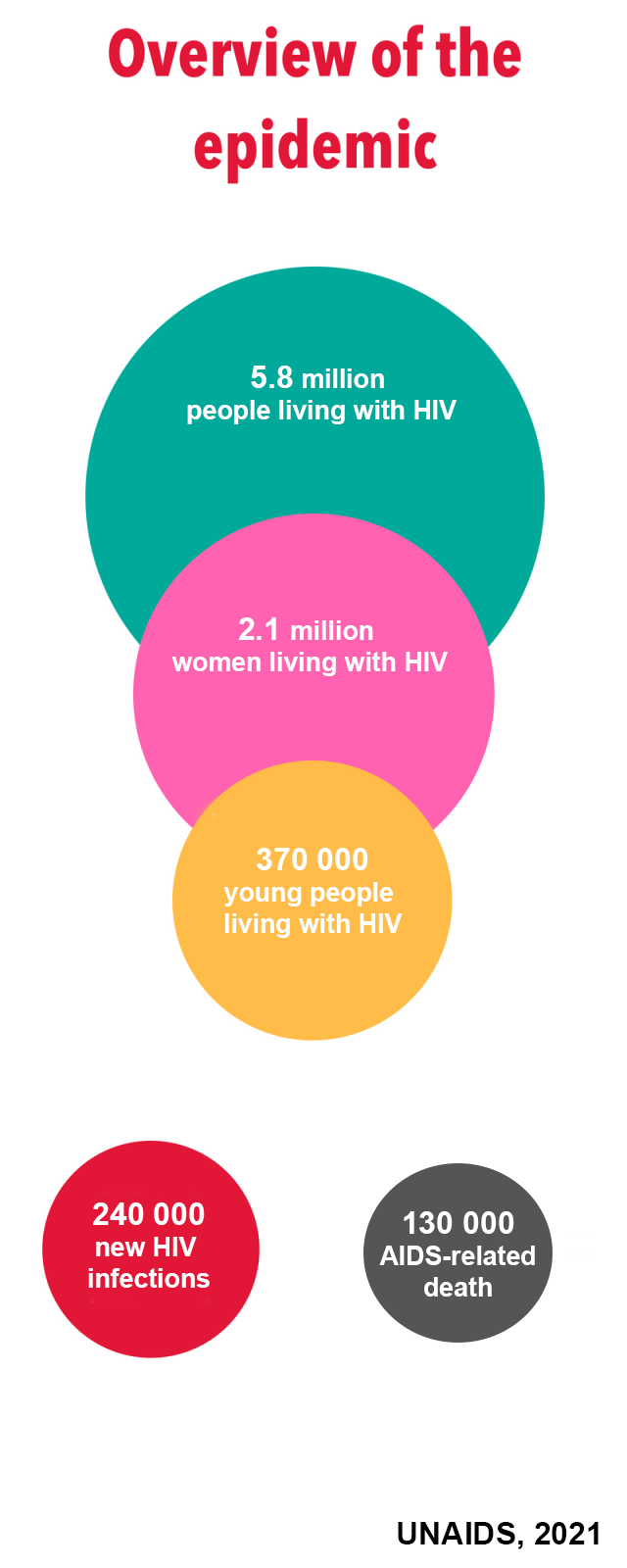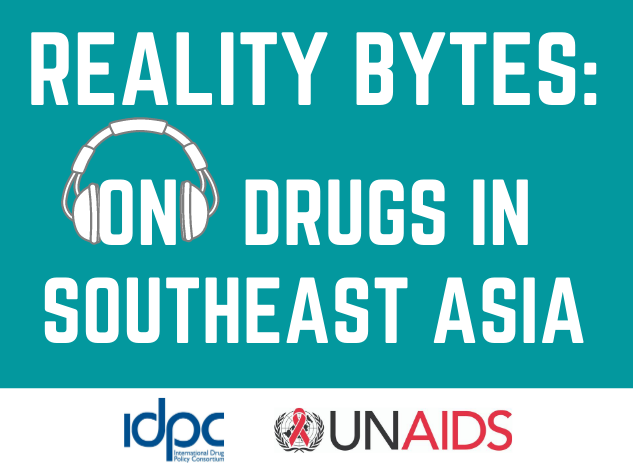Global Solidarity, Shared Responsibility – on World AIDS Day lessons from the HIV response support key populations during the COVID-19 pandemic

On the occasion of World AIDS Day, we recall lessons learned from the HIV epidemic, most especially that restrictive, stigmatizing and punitive measures can lead to significant human rights violations, with disproportionate effects on already vulnerable communities. These insights from the HIV response are especially relevant today as countries grapple with the impact of the COVID-19 pandemic.
COVID-19 has demonstrated that, during a pandemic, no one is safe until everyone is safe and revealed the entrenched inequalities existing in our societies. This health crisis, like many others, is hitting the poorest and the most vulnerable the hardest. We have seen how the COVID-19 crisis has exacerbated the challenges faced by people living with HIV, women and girls and key populations, including in accessing life-saving health care and livelihoods, and how the crisis has widened social and economic inequalities.
In Indonesia, for example, out of 1000 people living with HIV and members of key populations surveyed by the Indonesian Positive Network in August 2020, almost 50% were experiencing severe impacts on their livelihoods, challenging their right to an adequate standard of living. Sanggar Swara, a civil society organization of young transgender women in Jakarta, conducted a rapid assessment that found that more than 640 transgender people in greater Jakarta have lost their jobs, leaving them unable to support themselves. Seeing the critical need for support, the Crisis Response Mechanism (CRM) Consortium, fronted by the civil society organizations LBH Masyarakat, Arus Pelangi, Sanggar Swara and GWL Ina, with support from UNAIDS Indonesia, decided to raise funds for the transgender community. In less than a week, the CRM Coalition had collected more than IDR 67 000 000—around US$ 4100—and as of today, they have distributed food, hygiene packages and rent allowance to more than 2 000 transgender women across Indonesia. Full story: click here
This is just an example of what the HIV movement has done to defend progress, to protect people living with HIV and other vulnerable groups and to push the coronavirus back. In Asia and the Pacific, we have seen countless examples of how community activism and solidarity have been paramount in providing people affected by HIV with information, services, social protection, and hope. Whether campaigning for multimonth dispensing of HIV treatment, organizing home deliveries of medicines, or providing financial assistance, food and shelter to at-risk groups, HIV activists and affected communities are responding to the colliding epidemics of HIV and COVID-19.
The sex workers in Bangladesh have also organized themselves, establishing support networks to help their peers. As of May 2020, the Bangladesh Sex Workers Network, a nongovernment organization working for the rights of sex workers, mobilized financial aid for more than 2100 sex workers across the country that was distributed through the active engagement of 26 community-based organizations. UNAIDS and the United Nations Children’s Fund have been supporting the network of sex workers to develop income-generating schemes so they can compensate for the loss of income caused by COVID-19. Also, through the network of sex workers and in collaboration with the Bangladesh Country Coordinating Mechanism, UNAIDS supported 23 community-based organizations of sex workers to procure protective commodities such as soap and masks during the initial stages of the response to COVID-19. Full story: click here
This crisis has also been a wake-up call, an opportunity to do things differently—better, and together. In the Philippines, bicycles are being used to ensure continuity of HIV services to key populations during the COVID-19 pandemic. The Love on Wheels initiative was launched by the nongovernmental organization Project Red Ribbon, in partnership with the Manila Social Hygiene Clinic and Treatment Hub at the Manila Social Hygiene Clinic, and in collaboration with UNAIDS and the Department of Health–Metro Manila Center for Health and Development. Project Red Ribbon mobilized resources to buy e-bikes and other bicycles, which they then donated to the Manila Social Hygiene Clinic to provide mobile HIV services to hard-to-reach key populations. This initiative is playing an important role in ensuring the right to health for key populations during the pandemic and beyond. Full story: click here
Similarly, in Goa, India, the Human Touch Foundation, a community-based organization that provides care and support to children and adolescents living with HIV, has, since the start of the lockdown, organized a force of volunteers to deliver antiretroviral therapy to people’s doorsteps. Health officials at the HIV clinics provided a list of people who needed deliveries of antiretroviral therapy, after making sure that the beneficiaries consented. Full story: click here
COVID-19 is threatening the progress that the world has made in health and development over the past 20 years, including the gains we have made against HIV. We must put people first to get the AIDS response back on track. We must end the social injustices that put people at risk of contracting HIV and COVID-19. And we must fight for the right to health.
With this in mind, this year the theme of World AIDS Day is “Global solidarity, shared responsibility”. Global solidarity and shared responsibility requires us to view global health responses, including the AIDS response, in a new way. It requires the world to come together to eliminate stigma and discrimination, putting people at the centre and grounding our responses in human rights and gender-responsive approaches to end the colliding pandemics of HIV and COVID-19.
 UNAIDS Asia-Pacific
UNAIDS Asia-Pacific 


